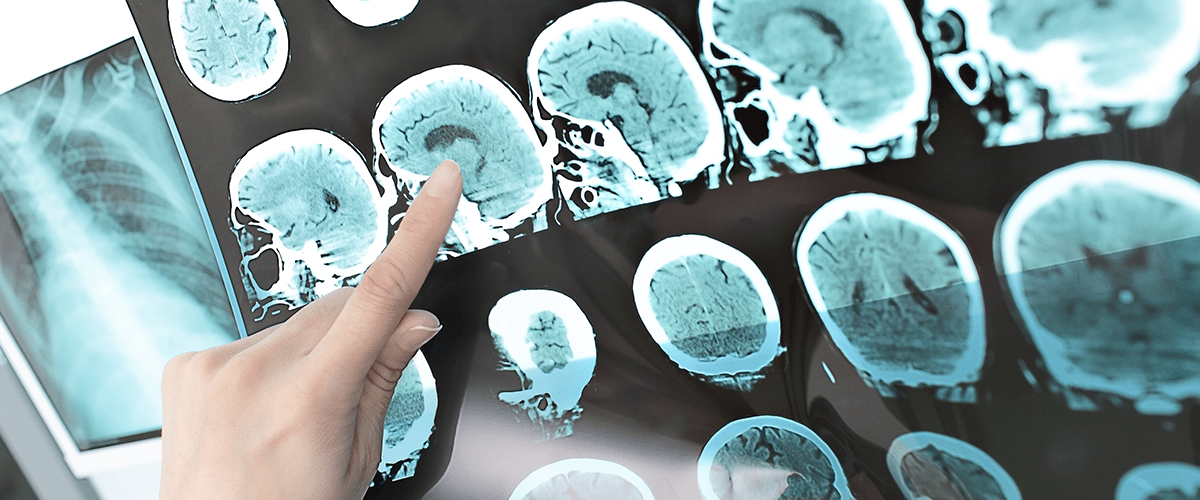[vc_row][vc_column][vc_column_text]
A study suggests that cannabis protects the life of brain cells by encouraging energy consumption, thereby helping manage and treat the cognitive degeneration associated with Alzheimer’s disease.
Cannabis may be therapeutically beneficial for treating Alzheimer’s disease because it promotes increased glucose uptake in the brain, according to a recent study published in Neuropharmacology.
Alzheimer’s disease is a progressive and irreversible brain disorder that destroys memory and cognitive skills. It’s the most common form of dementia.
Researchers have previously linked a lack of glucose uptake to a worsening of brain diseases like Alzheimer’s disease. When there’s a reduced expression of a protein responsible for moving glucose into the brain, those with Alzheimer’s disease experience greater cerebrovascular degeneration, neuropathy, and cognitive dysfunction. Research even shows that this lower brain glucose metabolism precedes, and therefore suggests that it likely contributes to, the development of the cognitive decline associated with Alzheimer’s disease. The idea that boosting energy metabolism in the brain could alleviate dementia symptoms has been suggested, but there is a lack of understanding regarding the process’s mechanism.
In this animal trial, Attila Köfalvi and a team of researchers from Cellular Neurosciences and Biology Center, University of Coimbra, and the Cajal Institute – Centre for Biomedical Research in Neurodegenerative Diseases found that activating the endocannabinoid receptor CB2 without activating the CB1 receptor is effective at encouraging glucose consumption by the brain and therefore can help protect brain neurons.
To activate the CB2 receptor only, Köfalvi used chemically modified tetrahydrocannabinol (THC). THC is the most abundant cannabinoid found in marijuana. It’s the psychoactive ingredient that causes a high following consumption.
“Through various laboratory techniques, we conclude that the CB2 receptor, when stimulated by chemically modified THC analogues to interact only with the CB2 receptor without activating the CB1, avoiding the psychotropic effects and keeping beneficial effects, promotes increased glucose uptake in the brain,” Köfalvi told Pravda.ru.
Activating the CB2 receptor in vitro and in vivo enhanced cerebral glucose uptake by about 30 percent, the researchers found.
“Given that brain glucose availability controls cognition and memory in humans and that central metabolic boosting alleviates the cognitive symptoms of dementia, these data suggest that CB2R agonists might represent a novel class of [memory and cognitive enhancing] drugs,” Köfalvi wrote in the study’s discussion.
Previous studies have also found cannabis to have therapeutic effects on Alzheimer’s disease through mechanisms beside the promotion of brain glucose uptake. Both THC and cannabidiol (CBD), another major cannabinoid found in cannabis, has been shown to reduce the building of plaques and tangles, which are twisted protein fibers associated with the disease. Additionally, THC has shown to be effective at lowering amyloid-beta levels and enhancing mitochondrial function. Research also suggests that CBD has neuroprotective, anti-oxidative, and anti-apoptotic (prevents cell death) effects, which have proven therapeutically beneficial for Alzheimer’s disease.
The results of the study are the first to provide direct pharmacological evidence that CB2 receptors are associated with glucoregulation in the brain.
You can access the entire study, “Stimulation of brain glucose uptake by cannabinoid CB2 receptors and its therapeutic potential in Alzheimer’s disease,” via Science Direct.
Learn more about the previous research on cannabis and Alzheimer’s disease and other conditions by visiting our education page.[/vc_column_text][/vc_column][/vc_row]






